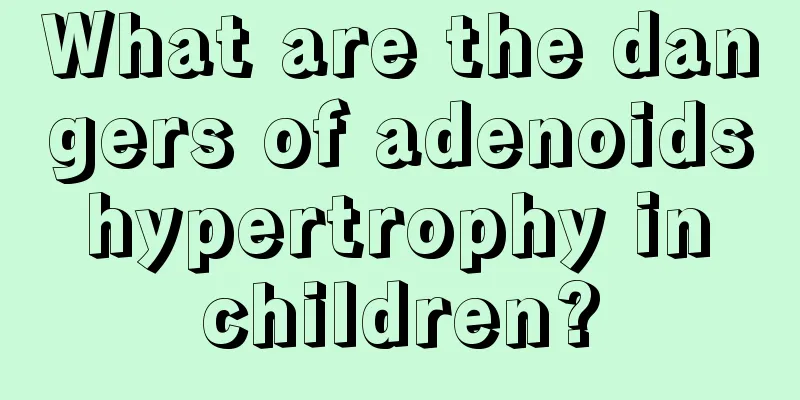What to do if a newborn baby has inflammation

|
Newborns are prone to respiratory infections, which can cause various inflammations. The environment in the mother's womb is very suitable for the survival of newborns, and they do not need respiratory tract for gas exchange. After a newborn is born, he or she learns to breathe by crying, and often experiences discomfort when exposed to the outside air. Neonatal pneumonia is a particularly common disease in pediatrics. There are so many children coming to see the doctor every day that the doctors are overwhelmed. How should we deal with inflammation in newborns? 1. Many people believe that pneumonia is caused by colds, fever and coughs. In fact, the symptoms of pneumonia in newborns are somewhat different from those in older children. After newborns are infected with pneumonia, their body temperature may not rise significantly, and only a few children with pneumonia will cough. The symptoms at this time are foam in the mouth and difficulty breathing. Some children also have purple lips, and some cry, but most of them do not eat well. If you have these symptoms, you should go to the hospital to check if you have pneumonia. 2. Although the symptoms of neonatal pneumonia are not particularly easy to detect, careful observation will reveal that the child's breathing is very fast at this time, and may even be accompanied by difficulty breathing. If the child is not crying and is quiet, the child's breathing will be different from that of normal people. However, when observing the breathing, do not observe it after just feeding, bathing, defecating, or crying. At this time, these abnormal situations will cause people to make misjudgments. 3. Symptoms of neonatal pneumonia usually appear within one week. However, the symptoms are often not particularly typical, and half of newborns with pneumonia have unstable body temperature. However, children with severe pneumonia or premature babies generally do not have an elevated body temperature. At this time, the child no longer drinks milk and becomes sleepy, but some children become very excited and cry all the time. The difference between neonatal pneumonia and general pneumonia is that the child does not cough. However, shortness of breath will occur soon after the onset of the disease, but the heart rate will increase. Premature babies are prone to respiratory arrest. Note: The frequency of neonatal pneumonia is also very high, especially for premature babies who are most susceptible to pneumonia infection. However, the symptoms are not particularly obvious when pneumonia occurs, unlike some adults or older children who have abnormal symptoms of coughing. This will easily delay the treatment of the disease, so you must pay attention to observe the child's symptoms at ordinary times, and treat it immediately if there is anything abnormal. Otherwise, if the pneumonia is serious, it may cause breathing difficulties in the newborn, and suffocation may also occur. It may also be life-threatening. |
<<: Can rule out biliary atresia
>>: My two-month-old baby has a red and hard chin.
Recommend
What are the rehabilitation training methods for children with cerebral palsy?
Parents must be very heartbroken when their child...
Reasons why babies cry when they sleep
The baby is the most important person in a family...
Is garlic effective in treating children's cough?
Garlic plays many roles in our lives. Not only do...
What to do if a child has a rash after a fever
Many children will develop a rash on their body a...
What are the symptoms of high muscle tension in newborns?
The health status of newborns is the most concern...
Is the smell of pine furniture harmful to babies?
Furniture is an indispensable item in home life, ...
What to do with hydrocele in children? Must-read knowledge for mothers
Hydrocele in children is a disease that is quite ...
The difference between heavy breathing and wheezing in babies
Babies are a very special group. On the one hand,...
Baby's feet have blisters
If parents find blisters on their baby's feet...
What should I do if my 9-month-old baby has a poor appetite?
If the baby catches a cold, he will have a poor a...
What causes children to have eye bags?
Generally speaking, children do not have bags und...
Symptoms of milk powder allergy in children
Although we usually support mothers to breastfeed...
The child wakes up crying at night
When children wake up crying at night, parents us...
Why do diapers smell so bad?
Diapers are also an indispensable baby product fo...
Can babies eat black fungus?
Wood ear vegetable is actually a commonly consume...









